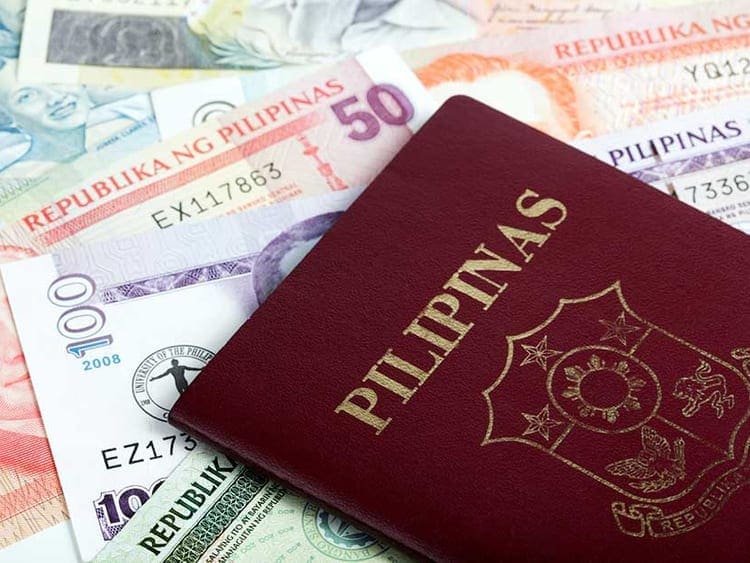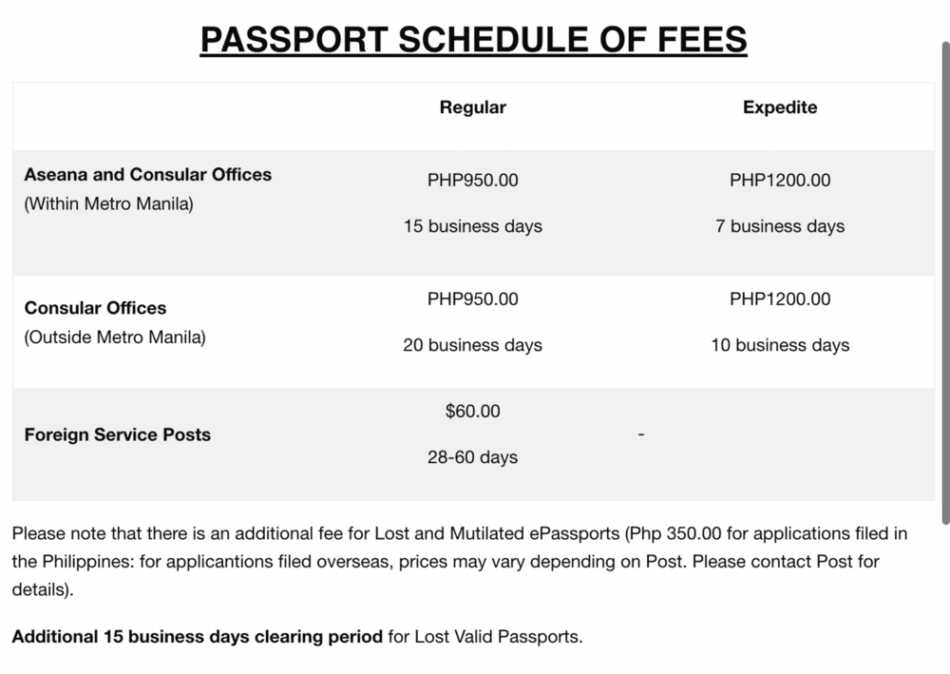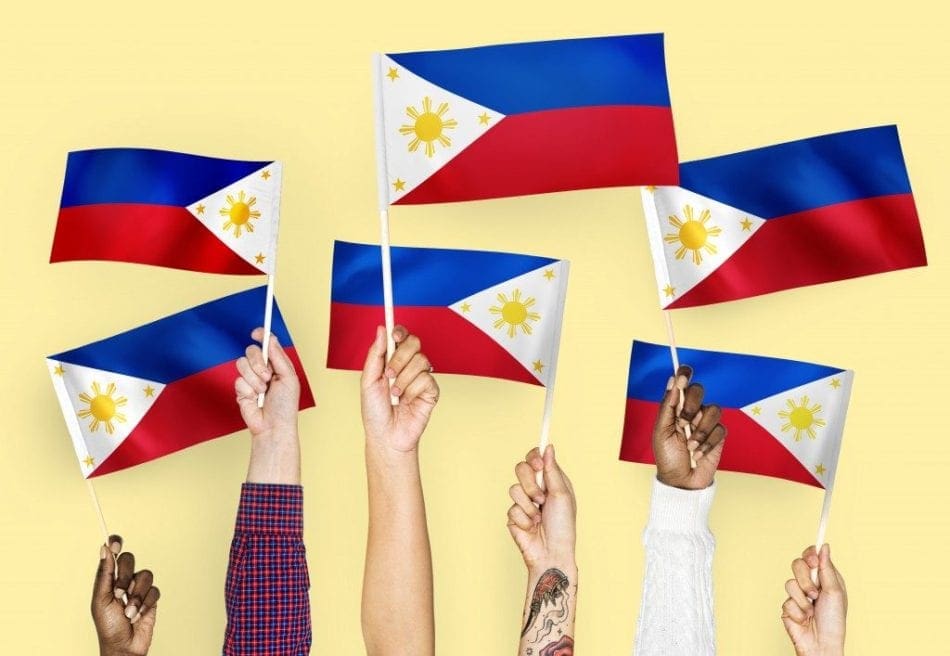Dual citizenship is a complex area – so seek professional advice before you make any decisions. However, to get you started, here are beginner guides to the laws concerning dual citizenship in the Philippines.
If you’re living some or all of the time in the Philippines, then seeking citizenship in the Philippines could make a lot of sense. Under local law, you’d have the same rights as any other natural-born Filipino, so for example, you’re free to travel in and out of the country without having to worry about visas. You’re also able to buy land, which is restricted to foreigners. But what if you don’t want to give up your original nationality to become Filipino?
Here’s where it gets tricky. The law of the Philippines doesn’t recognize dual citizenship for non-natives. This means that in most cases if you want to become a Filipino national, you’re forced to give up your original citizenship.¹ It’s different if you’re born in the Philippines, and then take up second citizenship elsewhere. In that case, you might be allowed to hold dual citizenship under Philippine law.
ALSO READ: What is the Best Time to Visit the Philippines?
What is Dual citizenship in the Philippines
Dual citizenship is the status whereby a person is concurrently regarded as a citizen of two countries. Former natural-born Filipinos who have acquired citizenship of another country (for example, Australia) can reacquire their Philippine citizenship through the provision of the Philippine law Republic Act 9225 (Citizenship Re-acquisition and Retention Act of 2003). Persons who were naturalized Filipinos and had acquired citizenship of another country are not eligible for Philippine dual citizenship.
NOTE: This publication is provided for general information purposes only and is not intended to cover every aspect of the topics with which it deals. It is not intended to amount to advice on which you should rely. You must obtain professional or specialist advice before taking, or refraining from, any action on the basis of the content in this publication.
Can you have dual citizenship in the Philippines?
Dual citizenship in the Philippines depends on whether you’re a natural-born Filipino or not. Foreigners who want to become Filipino must renounce their original citizenship before they’re considered to be Filipino. That means that a foreigner can’t have dual citizenship in the Philippines.
However, if you were born in the Philippines or most cases if your parents are natural-born Filipinos, but you were born elsewhere, you get the right to citizenship of the Philippines automatically.¹ This can apply even if you’ve already naturalized as a citizen elsewhere and renounced your citizenship. Under a law known as R.A.9225, natural-born Filipinos who lost their citizenship when they naturalized as citizens in other countries, can apply to have their Filipino nationality reinstated.¹ In effect, this means that you can hold dual citizenship – but only if you’re considered to be Filipino by birth
WHO CAN QUALIFY UNDER RA 9225?
Those who are citizens of the Philippines from birth without having to perform any act to acquire or perfect their Philippine citizenship. These are the persons:
- Whose fathers or mothers are citizens of the Philippines at the time of their birth; or
- Born before January 17, 1973, of Filipino mothers, that person elects Philippine citizenship upon reaching the age of majority.
Steps to Becoming a Citizen of the Philippines
There are several steps to becoming a Filipino citizen. The exact process you follow will depend on whether you’re a foreigner acquiring citizenship through naturalization, or a natural-born Filipino reclaiming your citizenship after revoking it.
The steps you’re likely to have to take include the following:
- Check your eligibility for citizenship
- Complete the application including all required documentation
- Pay your fee – to reacquire citizenship this can be as little as USD 50, but the fees are higher if you’re becoming Filipino through naturalization. There may also be a requirement to invest in the country before you can naturalize
- Swear an oath of allegiance to the country
- Receive a documentary proof of your citizenship and apply for a passport
Dual citizenship in the Philippines

Requirements for dual citizenship in the Philippines
1. Photocopy of the following documents (original copies to be presented during on-site claiming and signing of dual citizenship documents):
- 1. Photocopy of the following documents (original copies to be presented during on-site claiming and signing of dual citizenship documents):
- a. Birth Certificate from the National Statistics Office (NSO)/Philippine Statistics Authority (PSA)
b. Foreign Naturalization Certificate - In the absence of a birth certificate (1.a. above), a combination of the following two
- a. Birth Certificate from the National Statistics Office (NSO)/Philippine Statistics Authority (PSA)
- 2.Documents from the Philippines:
- Old Philippine Passport
- Philippine Birth Certificate
- Philippine Marriage Certificate
- ID issued by a Philippine Government Agency with your photo, full name, date of birth and nationality indicated (ex. LTO driver’s license and Postal ID)
- In the absence of a foreign naturalization certificate (1.b. above), execute an Affidavit of
- The explanation for not submitting Naturalization Certificate
2. Photocopy of the applicant’s US passport data page (the original passport to be presented during on-site claiming and signing of documents)
3. For those born before January 17, 1973, of Filipino mothers, and then elects Philippine citizenship upon reaching the age of majority.
Certified True Copy/Certification issued by a Philippine local civil registrar (LCR) that the statement of electing Philippine citizenship and oath of allegiance to the Philippines is registered with their office.
4. For married female applicants, a copy of her marriage certificate.
5. Completed Dual Citizenship Application Form
6. Three (3) 2×2 Colored ID Photos with White Background without eyeglasses or coloured contact lens took within six (6) months from application.
7. Money order made payable to “The Philippine Consulate of the country you’re in” for the exact amount of fees to be charged for the service (see below for the list of fees). Personal checks and credit cards are not accepted.
The Consular Officer reserves the right to request additional documents from the applicant
The Consular Officer reserves the right to request additional documents from the applicant
• For those applying with derivative dual citizenship:For each of the applicant’s child below 18 years old, the applicant shall present the original document and photocopy of the following documents:
a) Child’s Birth certificate;
b) Child’s Foreign passport and
c) Child’s three (3) 2X2 COLORED ID Photos with WHITE Background without eyeglasses or colored contact lens took within 6 months from application
Note: Only children below 18 years old of age of former natural-born Filipinos may qualify for derivative dual citizenship.
Derivative dual citizenship must be distinguished from a dual citizen by birth. A dual citizen by birth is a natural-born Filipino born in the US/foreign country that allows dual citizenship; thus all that person/parent of the person needs to do is Report the Birth.
Will My Application Affect my Citizenship in my own Country?
Prospective applicants for Dual citizenship in the Philippines under R.A. 9225 are advised to visit and read the contents on dual nationality of the country they’re in or to seek legal advice from an immigration lawyer.
Renounce your other nationality
If you become a citizen of the Philippines, can they legally force you to give up your other passport/nationality? Well, yes. Theoretically, you must renounce your other nationality when you become a Filipino if you’re taking on Philippine citizenship through naturalization. You have to commit to being loyal to the Philippines, and this is seen as something you simply can’t achieve if you’re also equally loyal to your place of birth.
Online commentators do discuss how you can take up citizenship of the Philippines without ever carrying out the full legal duties required by your home country to renounce your citizenship. That’s because some countries consider that people who acquired citizenship by birth can never lose it. Other countries make it quite a complex and lengthy process to renounce your citizenship.
That means that acting as a de facto dual citizen and holding two passports, for example, could be possible – but might very well be illegal. It could land you in trouble with both your home country and the Philippine authorities. Take legal advice before you make any decisions in this regard.
ALSO READ: Manila Attractions: Things To Do In Manila
Dual citizenship in the Philippines
How long does it take to become a Filipino citizen?
In most cases you have to have lived in the Philippines for 10 years before your application to become a citizen can be considered. However, this might be shortened if you’re married to a Filipino for example, or if you have a business in the country.
Once you have decided to apply for citizenship you have to declare your intention to do so up to a year before actually submitting your application. You should be told at this stage if there’s a problem with your application or any reason why you’re not eligible. It’ll then take a couple of months after this waiting period, to review and assess your application paperwork.
Does a dual citizen need to reside in the Philippines?
Residency in the Philippines is not required of those who wish to re-acquire or have re-acquired Filipino citizenship. Those who intend to vote in local elections, however, must establish residence in the locality where they wish to vote.
How much are the dual Citizenship Fees?
Documents | Fees (per applicant) |
Dual Citizenship Documents | $ 50 |
Affidavit of Explanation for not submitting Naturalization Certificate | $ 25 |
Derivative Dual Citizenship Documents | $ 25 |
HOW CAN YOU APPLY?
Submission of requirements
- Submission of applications for dual citizenship shall be BY MAIL ONLY.
- You may send your application together with other requirements to the Philippine Consulate of the country where you are living.
If all of the documents are in order, applicants shall be notified by e-mail of the approval of the application and the schedule of the virtual oath-taking.
On-site signing and claiming of dual citizenship documents will be scheduled accordingly. The originals of all supporting documents should be presented on-site as a precondition to the claiming and signing of dual citizenship documents.
Things to Remember:
- At the time of your application, you must review your personal details, affix your signature, and affix your thumbmarks on the spaces provided on the certificate.
- You will get all processed documents (Identification Certificate, Oath of Allegiance, and Order of Approval) when the principal petitioner has taken the oath. Upon receipt of your documents, please examine them if they were duly signed by the Consular Officer. The documents are invalid if not signed.
- Civil Registry Services provided by the Philippine Statistics Authority:
- Certified copies of Birth, Marriage, and Death Certificates, and Certificates of No Marriage Records (CENOMAR), can be requested online at PSA Serbilis. PSA will mail your request/record to your U.S. address via courier service.
Benefits of Re-acquiring/Retaining PH Citizenship
Filipinos who have re-acquired their PH citizenship under RA 9225 may once again enjoy full civil and political rights and be subject to all attendant liabilities and responsibilities under existing laws of the Philippines subject to conditions. These rights include:
1. To vote in the PH national elections
- A person who reacquires his/her PH citizenship may vote in elections in the PH provided that he/she complies with the residency requirement under existing PH election law. He/she may vote abroad in PH national elections (and vote for a President, Vice President, Senators, and sectoral representatives) provided he/she meets the requirements under the Overseas Absentee Voting Act.
2. To run for or be appointed to public office
- Despite having reacquired PH citizenship, one does not automatically gain the right to run for public office. First, he or she must meet the qualifications for holding such office as required by the 1987 Constitution and existing laws. Thereafter, prospective candidates must, at the time of the filing of the certificate of candidacy, make a personal and sworn renunciation of any and all foreign citizenship of any and all foreign citizenship before authorized public officers. The same requirement is imposed on those who are about to be appointed to any public office in the PH.
3. To practice his/her profession
- Despite having reacquired PH citizenship, one does not automatically gain the right to practice his/her profession in the PH. To be able to do so, he/she must apply with the proper PH authority (PRC and other accrediting bodies) for a license or permit
Please note that the right to vote or be elected or appointed to any public office in the Philippines cannot be exercised by, or extended to, those who:
- are candidates for or are occupying any public office in the country of which they are naturalized citizens; and/or
- are in active service as commissioned or non-commissioned officers in the armed forces of the country in which they are naturalized citizens.
ALSO READ: How to Convert a Foreign Driver’s License in the Philippines
Do the same limitations on former Filipinos concerning land ownership still apply to those who have re-acquired their Filipino citizenship?
Having re-acquired Filipino citizenship under this Act, one is deemed to have re-acquired the right to own land as a Filipino citizen without prejudice to citizenship in a foreign country. The limitations imposed on former Filipinos no longer apply to them.
Documents to the Philippines passport processor
- Dual Citizenship Documents
- Old Philippine Passport or in case of loss, an Affidavit of Loss
- Completed Passport Application Form
- Birth certificate from the NSO/PSA
- Marriage Certificate from the NSO/PSA for females wishing to use their married surname for the first time
- Please note that a confirmed appointment is required to apply for a passport at the Philippine
- Consulate General of the country you’re in.

How long can you Stay in the Philippines?
Dual citizenship in the Philippines – You can stay in the Philippines indefinitely provided that upon your arrival in the Philippines you present before the Philippine Immigration Officer your valid US/Foreign passport and your Dual Citizenship Documents.
EXCEPTION: when you travel with your Foreign Husband/Wife/Child.
- You and your foreign husband/wife/child are entitled to a visa-free entry to the Philippines for a period of one (1) year from arrival in the Philippines, among other privileges, provided you all have a round trip/return tickets with the same return flight schedule to the US.
- Under the Balikbayan Law, a Filipino citizen’s (including dual citizens and former Filipinos) foreign spouse and children are entitled to a visa-free entry to the Philippines and visa-free stay for a period of one (1) year, provided they enter the Philippines with the said Filipino and they have a return air travel ticket.
There are other programs that are similar to dual citizenship in the Philippines
There aren’t any schemes that are a direct replacement for citizenship. However, there are some good, and fairly flexible long-term visa options available which could be a good choice – for example, if you want to retire in the Philippines. (which I will discuss in the next article)
Juggling lives between two nations?
If you live and work abroad, or travel regularly between different countries, life can get pretty complicated. And questions of citizenship aren’t the only practical headache. Another big issue for many people is the cost of everyday banking. You can lose out, especially if you have to move your money between bank accounts held in different countries and currencies.
If dual citizenship is on your radar then you’re probably someone who travels frequently or lives and works abroad. Does this sound like you? Then you’ll know how important it is to find practical solutions to make your money work for you. If you spend your time moving between different countries, you could end up paying over the odds unnecessarily for day-to-day banking.
Do you need to pay Income Taxes?
If you live outside the Philippines for over 180 days in a taxable year, only income generated within the Philippines is taxed by the Philippine government.
Note that the Philippines and the United States of America signed a treaty on taxation in order to avoid double taxation for Filipinos who derive income from the United States and for Americans who derive income from the Philippines. Under this treaty, taxes paid in the United States may be credited to the Philippines and vice versa.
- For resident and non-resident aliens engaged in trade or business in the Philippines, the maximum rate on income subject to final tax (usually passive investment income) is 20%. For non-resident aliens not engaged in trade or business in the Philippines, the rate is a flat 25%.
Doing business or investing in the Philippines?
The Board of Investments of the Department of Trade and Industry (BOI-DTI) may assist overseas Filipinos in promoting their commercial interests in the Philippines. They may be contacted through:
Board of Investments, Department of Trade and Industry
Address: 385 Sen. Gil Puyat Ave., Makati City
SOURCE: Department of Foreign Affairs, Philippines
Manila Accommodation
Travelers to Manila give high marks for the shopping, cathedral, and top-notch restaurants. Tourists who journey to this culturally-rich city can discover its Chinatown, live music, and entertainment choices. Top sights in the city include SM Mall of Asia, San Agustin Church, and Rizal Park.
- There are 803 hotels and other accommodations in Manila
- The closest major airport is in Manila (MNL-Ninoy Aquino Intl.) 10.4 from the city center


